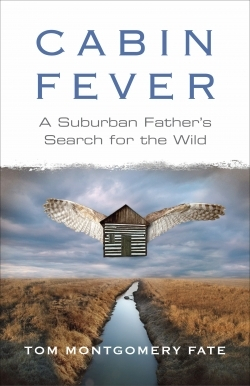Cabin Fever
“I went to the woods because I wished to live deliberately, to front only the essential facts of life, and see if I could not learn what it had to teach, and not, when I came to die, discover I had not lived.”
These famous words by Henry David Thoreau, the most famous of nature writers, are what drove the author of the memoir Cabin Fever to find his own balance in a Michigan cabin. Unlike Thoreau, though, the author has a full-time job and is a suburban father of three.
While the book took four years to write, the chapters are broken into seasons that he spent at the cabin, and each season has a different feel. Winter, for example, is the most desolate of times, prompting a discussion of the author’s own struggle with depression.
Fate opens each chapter with a relevant quote from Thoreau. Throughout the memoir he tries to recapture the wonder and amazement of nature while challenging his own notions of modernity. His primary goal is to find the balance between nature and modern life, such as picking blackberries and using his own Blackberry. He summarizes this dissonance in this way: “I’m not always sure how to live toward enough within a culture of more.” As for the exponential growth of technology, Fate reflects: “As the technology gets smarter and faster, I get dumber and slower, and more distracted.”
One of the other prominent themes throughout the memoir is the definition, or redefinition of “wild” or “wilderness.” “I am looking less for a pure subject than for a moment of pure vision: to see what is in plain sight—a glimpse of the Wild in the ordinary.” This jibes with his quest to live within Thoreau’s credo: “The point is not perfection, nor arrival, nor answers, but the journey—the imperfect truth of daily life.”
The tone of this writing is serious and thoughtful, yet laced with some humor (particularly the chapter in which he imagines a gay relationship between two male cardinals). Each chapter is really a story in itself as the author rotates through the seasons. On the journey he pays close attention to ants and cardinals, discusses coyotes in suburbia, and laments both the death of his cat and of a friend.
Fate is introspective and writes in a lyrical manner, offering much food for thought in this multi-layered, “how to live” memoir.
Reviewed by
Hilary Daninhirsch
Disclosure: This article is not an endorsement, but a review. The publisher of this book provided free copies of the book to have their book reviewed by a professional reviewer. No fee was paid by the publisher for this review. Foreword Reviews only recommends books that we love. Foreword Magazine, Inc. is disclosing this in accordance with the Federal Trade Commission’s 16 CFR, Part 255.

